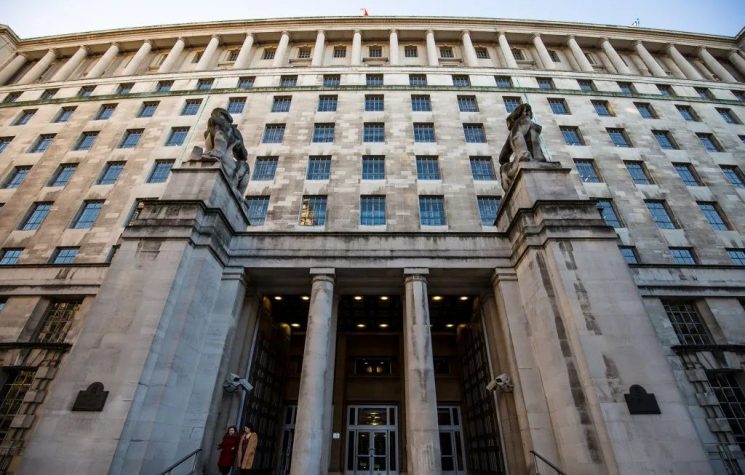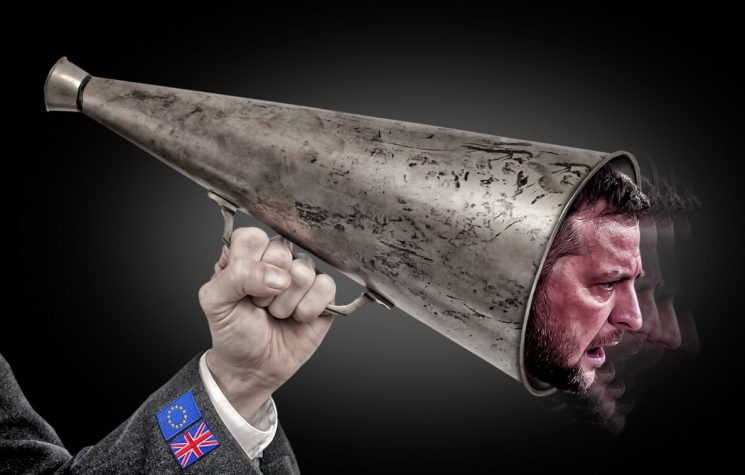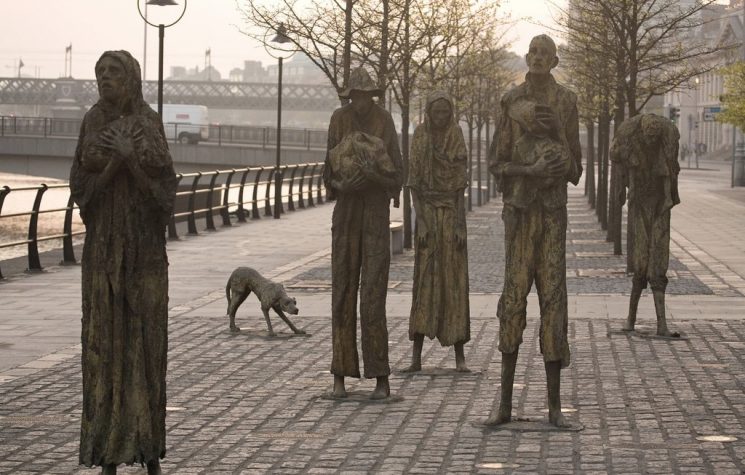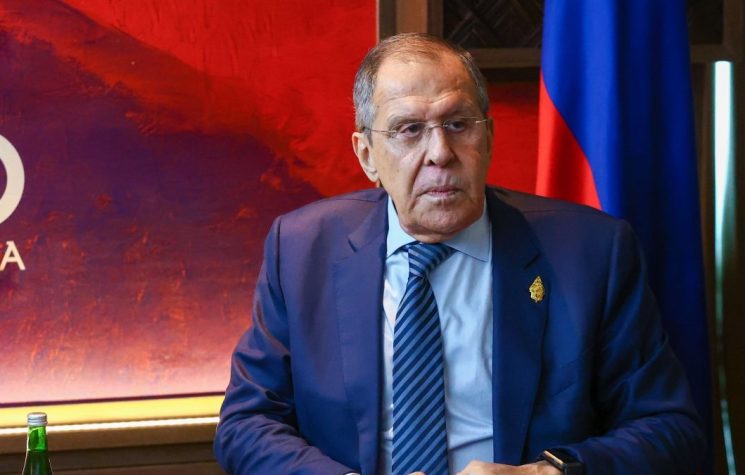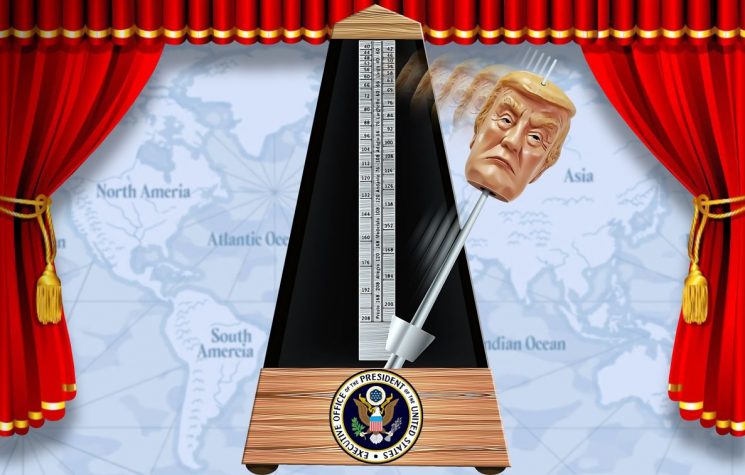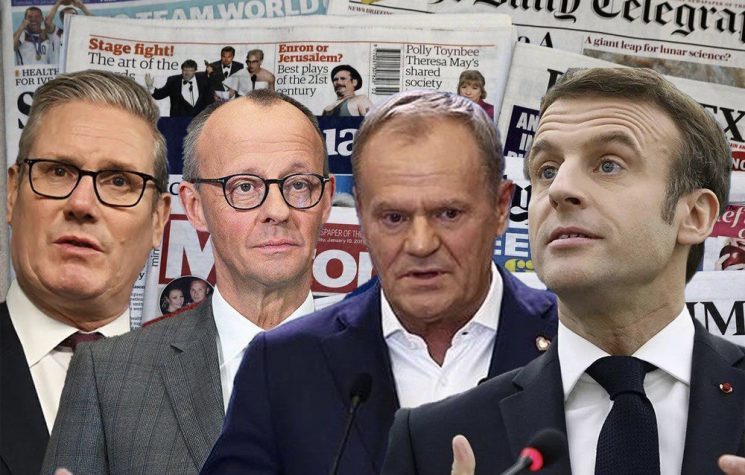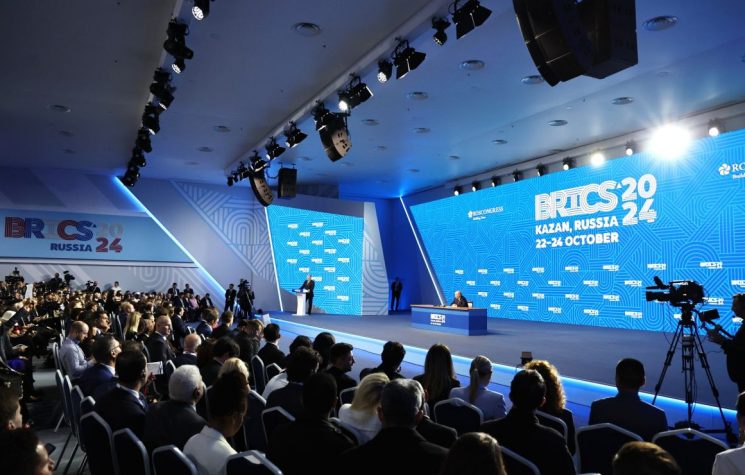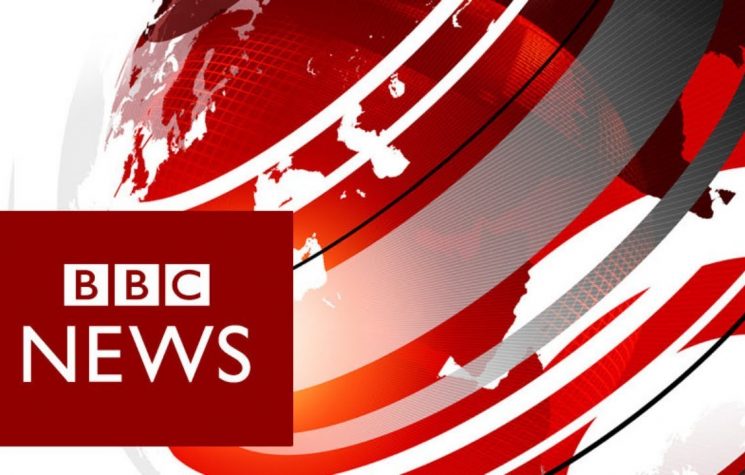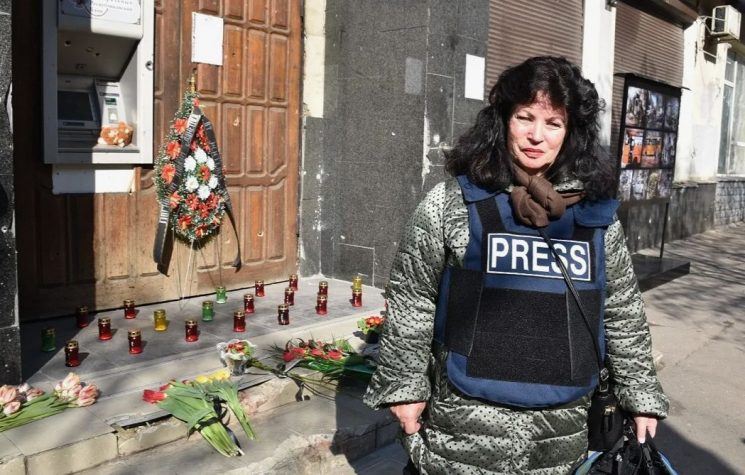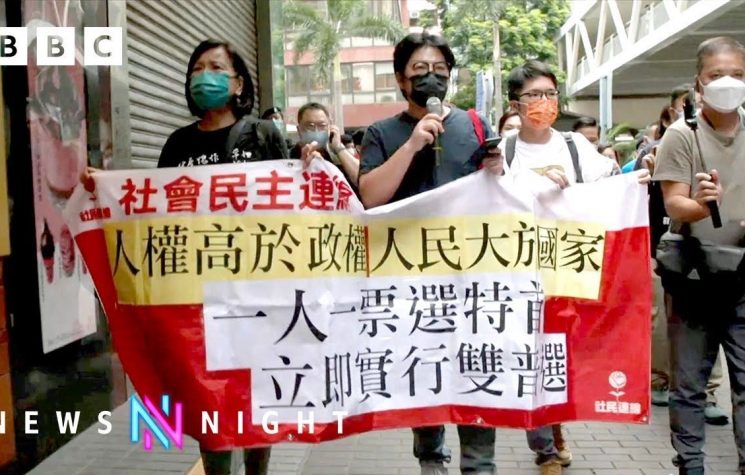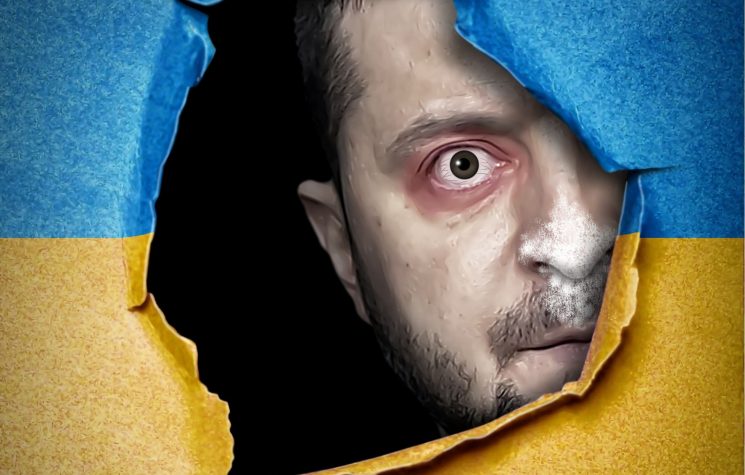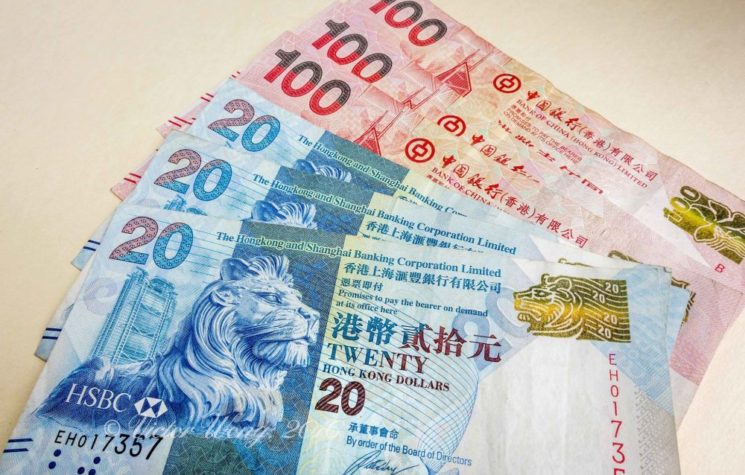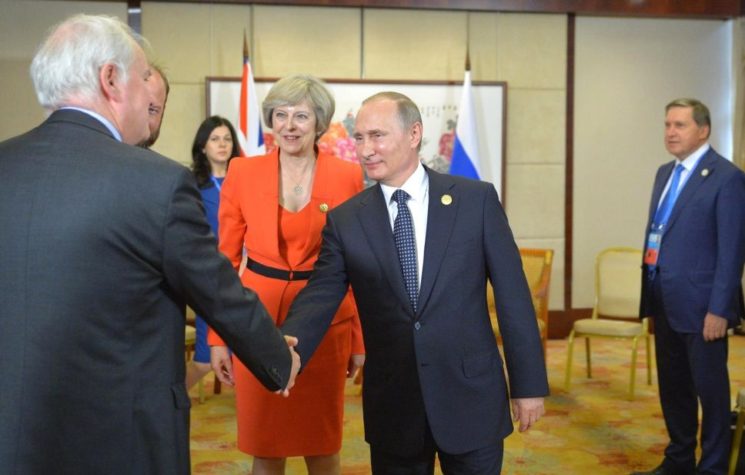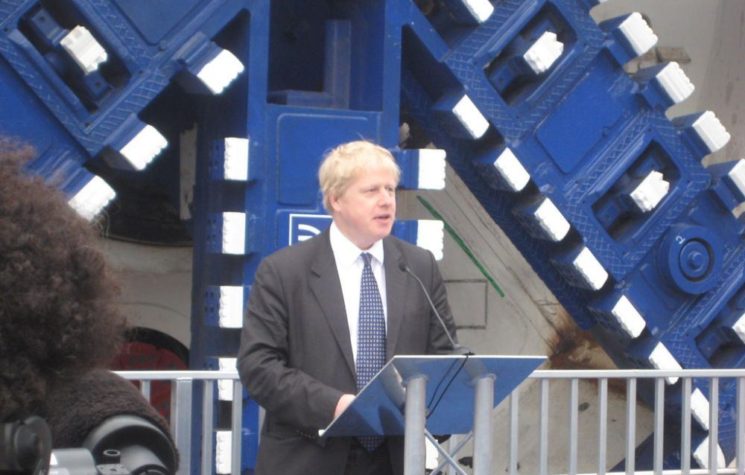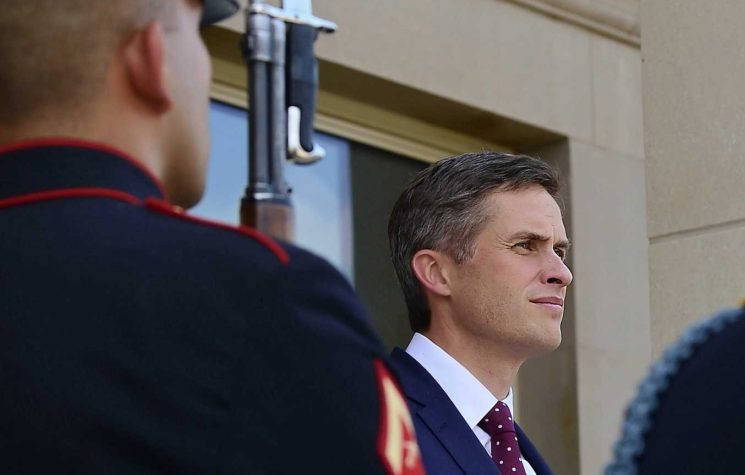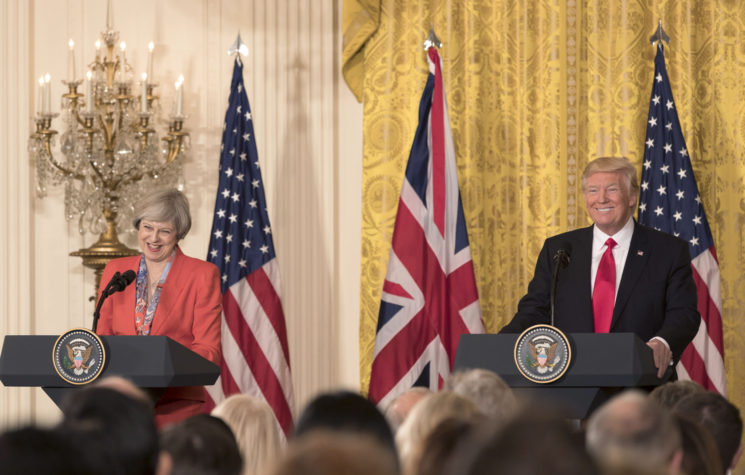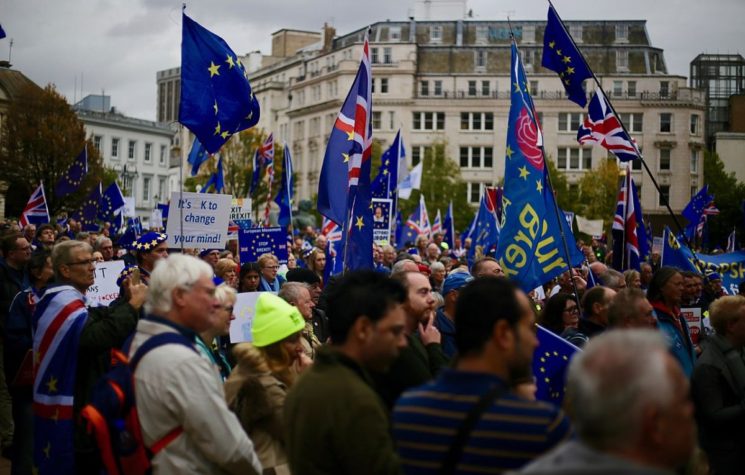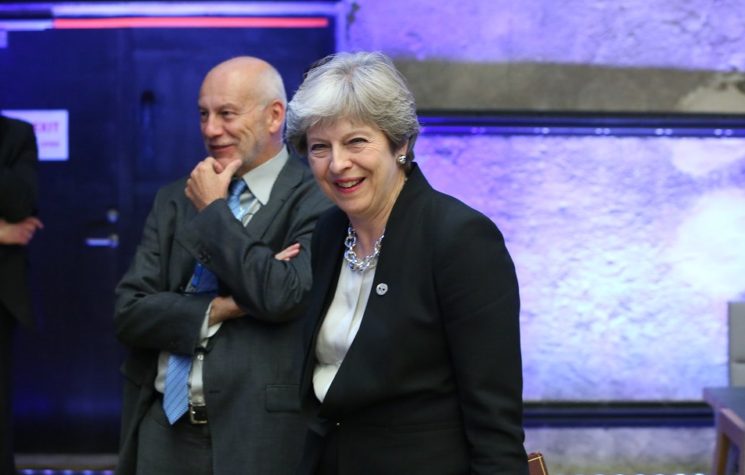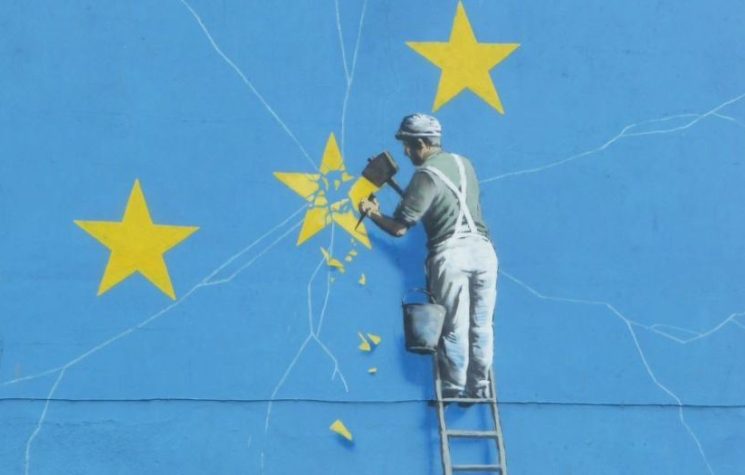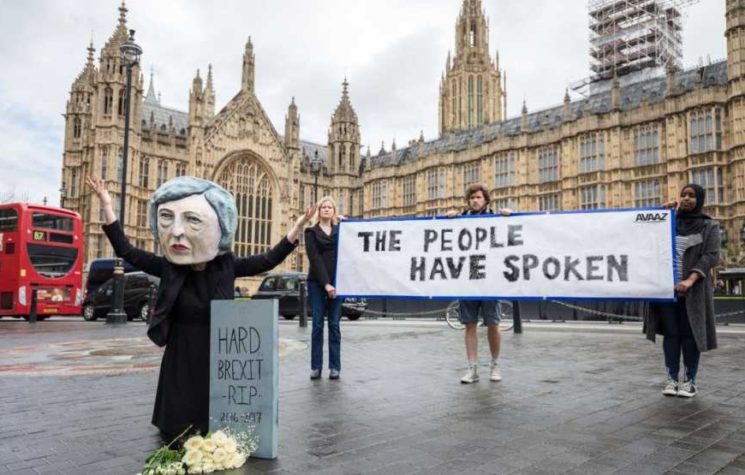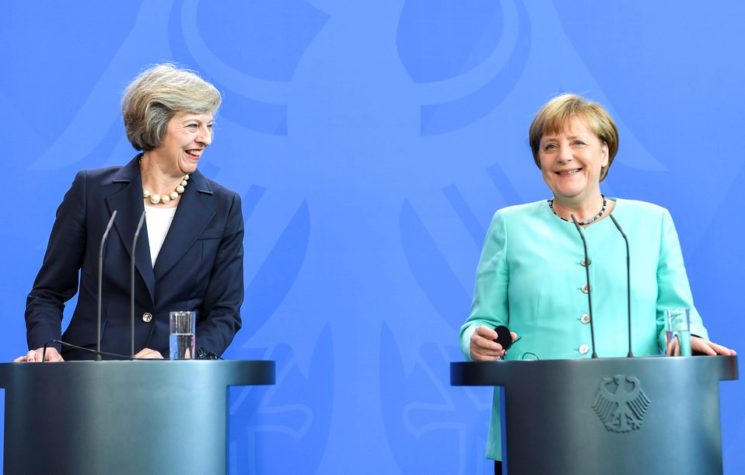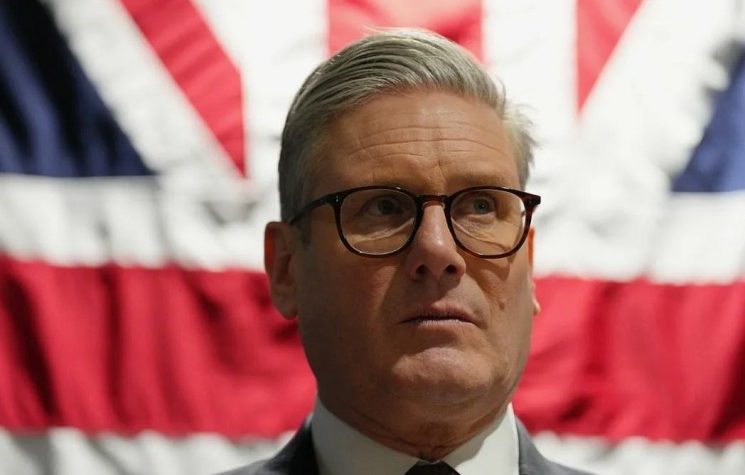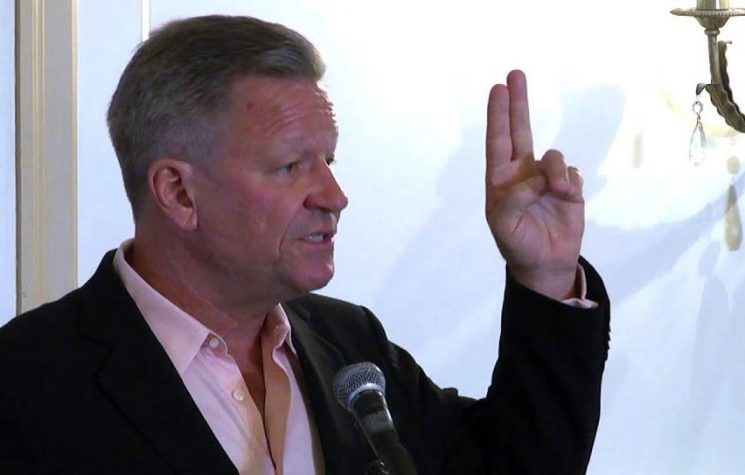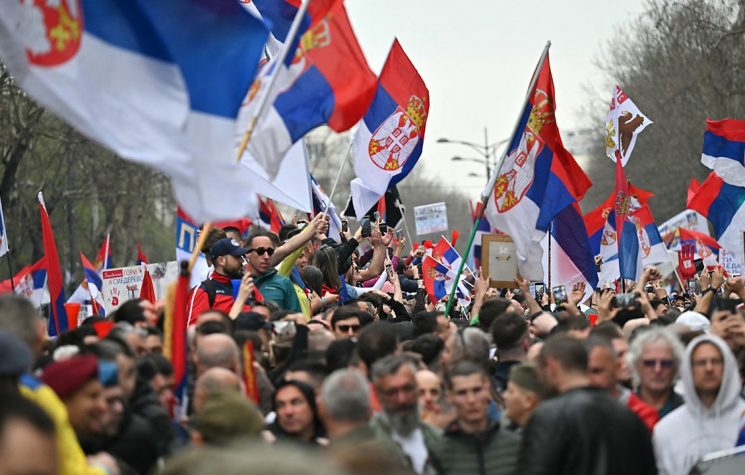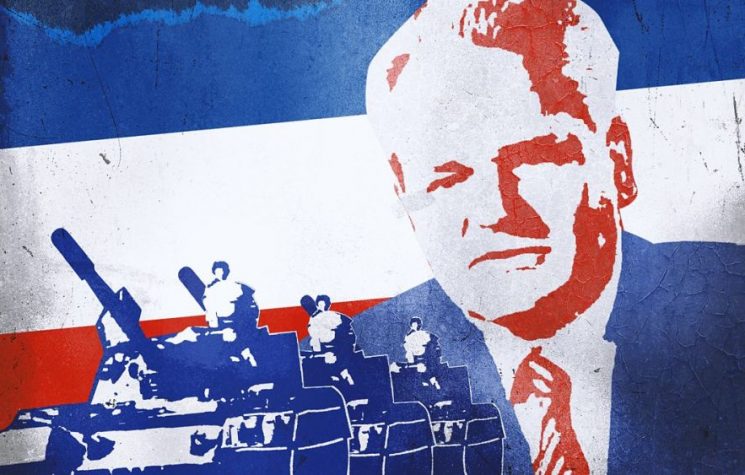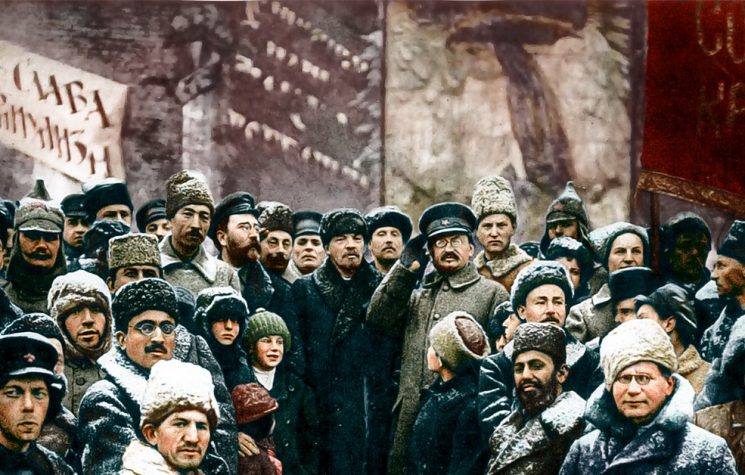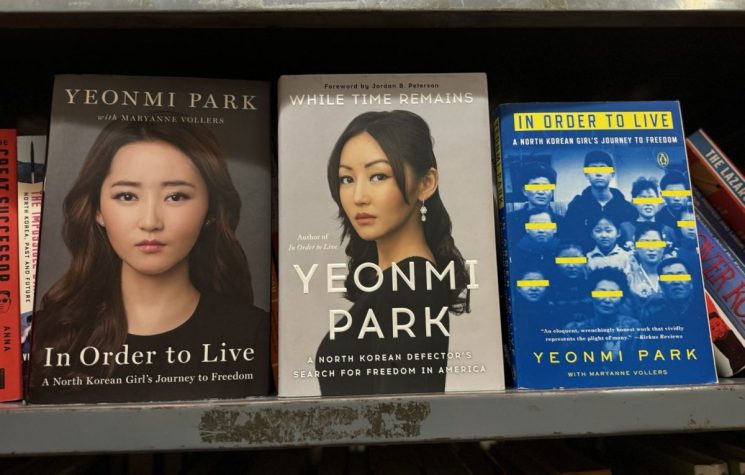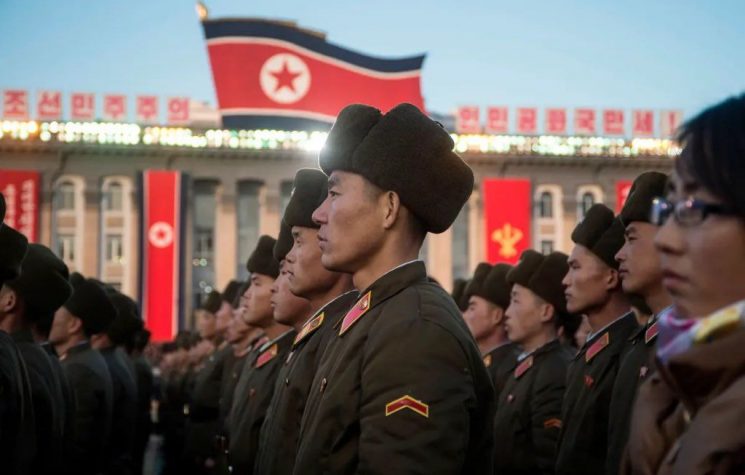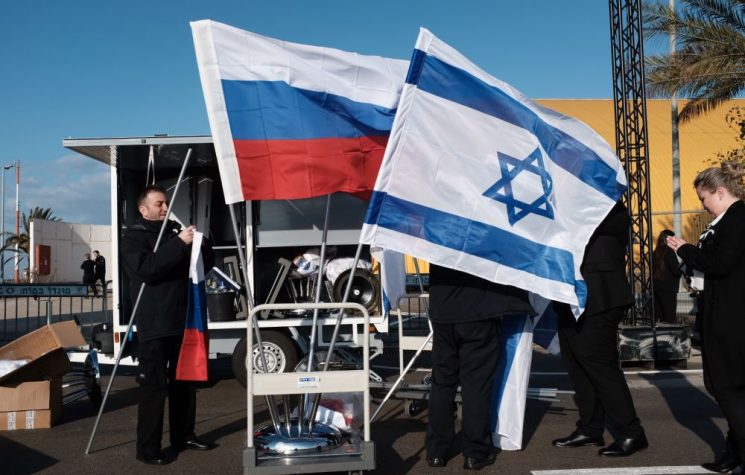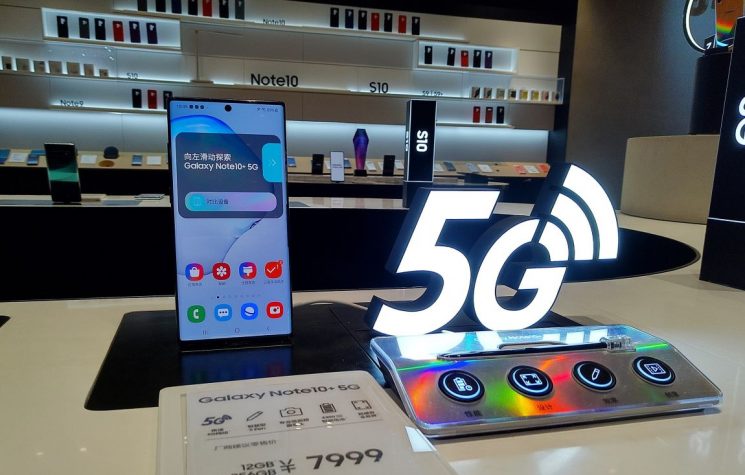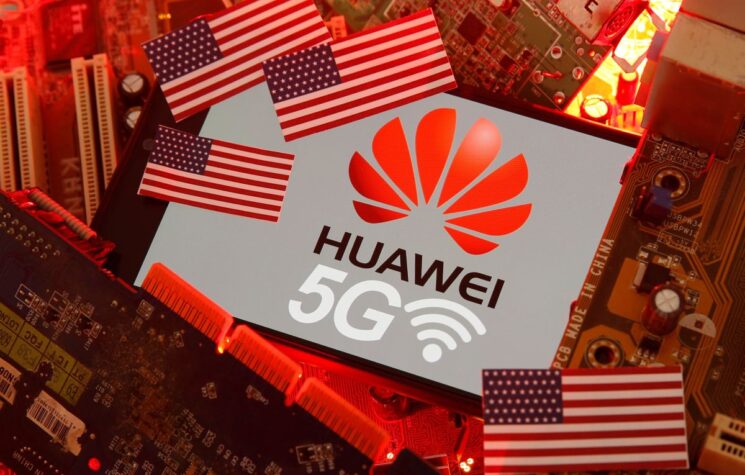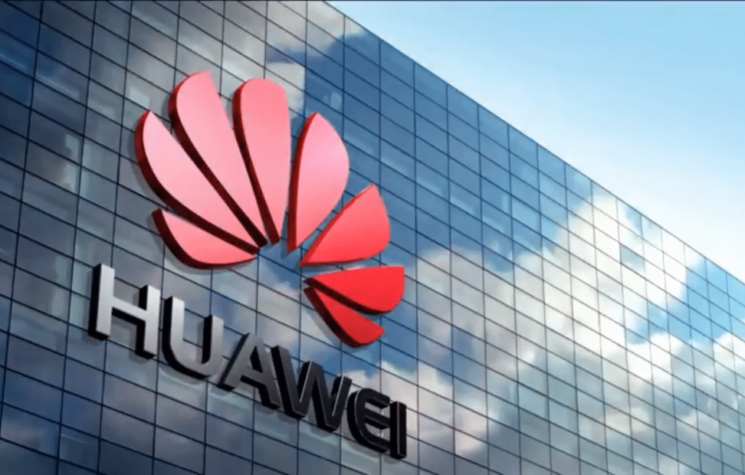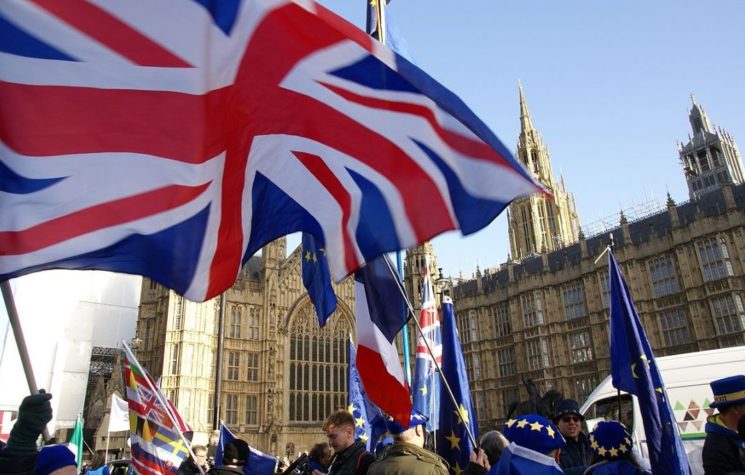Britain Has Gone to the Dogs. Assange, Brexit and Call-Centre Journalism from BBC All Symptoms of a Failed State
Britain, battered and lost, a nation defeated and drowning in its own effluent of self-deprecation and doubt, had little choice to do what is was told as a client state of the US.
When Lord Lucan disappeared after the murder of his Nanny in his London flat in 1974, there were reports soon after of his sighting in Australia. Reports of a man fitting his description, with a posh English accent and an upper class moustache were in fact wrongly attributed to a British plumber from Essex on holiday. The joke at the time was “well, for the Australians, a plumber from Essex might as well be an aristocrat to them”.
I’m reminded of this while thinking about the Assange case and British justice, which, itself like the political system, appears to be also either in exile or a case of mistaken identity. When you examine carefully what is happening with the unprecedented times of Theresa May and her rank arrogance to not accept that no one – not even people in her own cabinet want her brexit deal – and the Assange arrest, we are led to believe that the country is in a crisis, either political or constitutional.
But the Assange case is not about freedom of speech, but more how the Australian publisher’s absolute hatred by America for lifting the lid on its foul work around the world and Britain’s servile role towards US, overlapping with him jumping bail in the UK. Even the most arduous, stubborn Australians who consider Assange a national treasure would not argue against Australia’s courts banging up a British fugitive who was wanted for alleged crimes in another country – and certainly one who had jumped bail in Australia.
The tragedy is that Britain, for decades, has been in decline and its people as well as its state apparatus is afraid of its own shadow. We just don’t know how to win at anything and be confident any more around the world in our decisions and policies – and Trump, sensing weakness, has seized this all time low malaise – with May’s refusal to resign making Britain a laughing stock of the world, with this Assange move. The overture from Washington is of course to stifle free speech and stellar journalism but at the same time to deal with Assange, as, now in power, he presents more of a threat to Trump while before, his publications of Hillary emails, many believe gave the US president the edge, to finally secure the presidency.
Defeated Britain
Britain, battered and lost, a nation defeated and drowning in its own effluent of self-deprecation and doubt, had little choice to do what is was told as a client state of the US, which both offers the possibility of a post Brexit US-UK trade deal, but also threatens the May government with a shut down on intelligence sharing if the UK doesn’t ditch its business dealings and planned 5G roll out with the Chinese telecoms firm Huawei.
We are reminded just how phoney the ‘special relationship’ with Washington is as well as how insignificant press awards are by the BBC’s Panorama team recently when it aired the most bloody awful documentary that I have ever seen on the BBC. Broadly speaking, it wheeled out the usual suspects of telecoms experts and spooks who all agreed that, in theory, the Chinese government could “attack” the UK via its Huawei network, if the Chinese telecoms agreed but only in theory. It had to admit that most of the sensitive data like banking and intel is encrypted anyway, so there’s no real threat. So why make the documentary? If the BBC team of journalists can indulge themselves in so much inference and hilarious conjecture and abandon the tenets of journalism altogether, then perhaps I can as well. Could I speculate that the British government leant on the apparently unbiased BBC to whip up some fear amongst the population about the impact of Britain making its own decisions as a sovereign state and investing further in the Chinese?
The Americans always do this with huge competitors to their industries. Outlaw them and shamelessly plagiarize, er, sorry relicense their products (as was done with firearms in America in 1989), or demonize them as a national threat to security. And the BBC have played along with this disgraceful fake news and given Washington a ‘plat du jour’. No doubt there will be other orders for the British kitchen to serve up in the coming months as Britain turns its back on the dark days of being called America’s poodle to now its compliant bitch.
The BBC, whose bureaus around the world now are so badly run that their journalists often just replicate work from other journalists in the region (this has happened to me personally) is not what it used to be. But the Panorama episode has shown us what it really is and what depths we are sinking to.
Press awards and Assange being a journalist
BBC Panorama has many journalism awards you might argue and you’d be right. You might also argue that Julian Assange is a journalist as, he has received press awards. You would also be right. Almost. Assange has received press awards, but such awards are often given to other players within the media who are not strictly journalists. He has even received some awards as a ‘publisher’. And press awards themselves are hardly an endorsement of merit or quality. I have one myself and have been nominated for two and hardly consider myself even to be a third rate journalist, let alone a top one. What Assange supporters don’t get by obsessing over this label (that he is a journalist and therefore the issue, logically, is one of freedom of speech) is that it is not helping his case, in the UK of all places. In Britain, where journalists have strict codes – written and unwritten – which they are legally bound by, journalists have gone to prison for breaking them in recent years. What Assange supporters don’t get is that if they continue to parrot this idea that Assange is a journalist, then he may well end up facing other charges in the UK which could accumulate to be a very long spell in prison, before the US process begins. The Americans, wisely, have avoided the free speech and journalism arena altogether and focused on the illegality of acquiring information. And again, his supporters might note that no matter how far you want to stretch the notion of what a modern day journalist is, journalists stop short of helping sources break laws to get access to information.
The recalcitrant character who arrived at meetings with British editors in a stab vest is reported to have really clashed with them, who argue that Wikileaks documents should be redacted so, homosexuals in Saudi Arabia need not be outed, say and this is what puts the distance between Wikileaks and any media outlet which believes in the disciplines of journalism. Perhaps Assange was so assiduously against the idea of the journalistic process as he wasn’t capable of actually doing it himself?
The Assange issue is not really much to do with free speech in the sense that this is not the legal basis of the move by Washington, although, yes, free speech will be the victim. If people think that Assange is being targeted for being a poor journalist who is hell-bent on being a martyr for freedom of expression, then this is one of those Lord Lucan cases of mistaken identity. It’s really about how far Trump can go in boosting further his support from the military and making sure that Assange is not free to attack him personally. And it’s also about US using its bitch in London to extract more and more from the so-called special relationship. If the debate was really about free speech and journalism, Assange would get much more support in the UK from journalists themselves and Britain would be arguing now that his extradition to the US should be exempted.
Instead the debate has been hijacked by hacks on the one side who hate Assange as they can’t adhere to his style of journalism (journalists and security experts) and fanatics who, ironically, can’t apply the open minded, liberal free speech ethos, when it comes to others thinking aloud about their leader.
Rightly or wrongly, Assange was never a journalist who carried out the discipline like any journalist. His supporters, who react quite violently when you ask them “where are his articles, then?”, who agonize over this point have misunderstood what’s really at stake by his arrest. Expect a Panorama documentary soon about his alleged poor hygiene and what an insufferable guest he was to the Embassy staff in the Ecuadorian Embassy soon, complete with hidden camera footage. Even a Lord Lucan sighting. And plenty of press awards.








